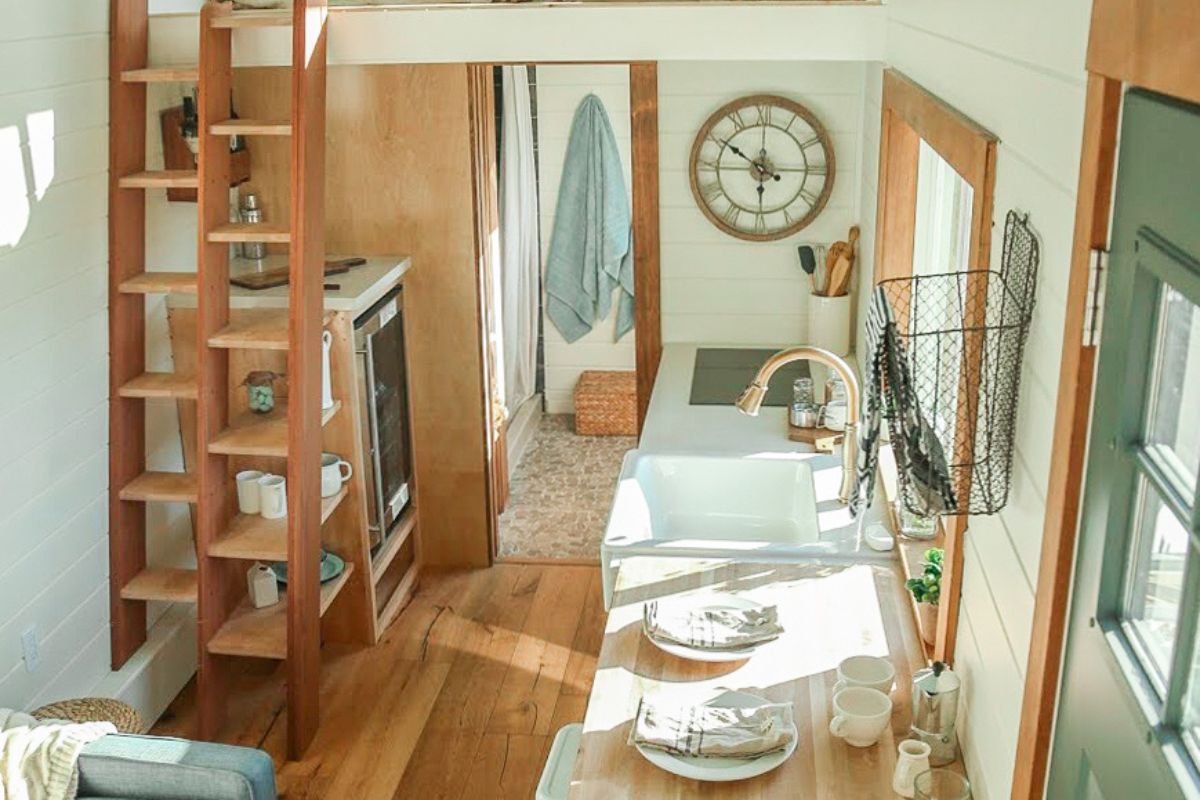Rising temperatures in the world are redefining our lifestyle, business, and comfort in the world. The rate of climate change is rising with the increase in the length of summers, the intensity of heat, and their unpredictability. Air conditioning, to those who own homes and to businesses, is no longer something to have fun in the season; it is a need that they should utilize throughout the year.
The demand for emergency AC services is on the rise due to the aging of HVAC systems, as well as high levels of usage and extremes of the climate.
For those living in compact spaces like tiny homes, temperature regulation can be even more challenging. Because of their smaller interiors and limited insulation, tiny houses tend to heat up or cool down faster, making reliable air conditioning systems — and timely maintenance — essential for comfort and safety throughout the year.

Heat Waves That Push Systems Beyond Their Limits
Heat waves have hit some parts of the world in recent years and increased the need for emergency air conditioner repair. AC systems are forced to work exponentially to ensure that, with an increase in temperatures well beyond what they are supposed to be, it is able to sustain a comfortable interior climate.
This leads to:
-
Overheating of the compressor may lead to system shutdowns.
-
The changing pressures in the refrigerant lead to ineffective cooling.
-
Loss of the strain in electrical components raises the chances of short-circuiting or burning out.
-
Long acquisition times, increases in the power bills, and mechanical wear and tear.
Even those systems that are well-maintained may collapse in this situation, and a series of failures will take place as the heat peaks.
When Cooling Becomes a Health Priority
Air conditioning is mostly considered a comfortable option; however, in hot seasons, it is a lifesaving need. 150,000 deaths are linked to heatwaves globally each year.
The vulnerable groups include:
-
Elderly adults
-
Infants and young children
-
Individuals with chronic illnesses or disabilities.
-
Inhabitants of an inadequately insulated home.
Emergency AC services are, therefore, very important in ensuring comfort, as well as preserving the health of the people. Hospitals, nursing homes, and daycare centers are highly dependent on the timely response of the HVAC professionals to ensure that the deterioration of the environmental conditions does not turn into a medical crisis.
The Hidden Strain on Local HVAC Infrastructure
Behind all the homes and offices that have the cooling system installed, there is a row of technicians, suppliers, and manufacturers who make sure that the equipment operates.
A typical commercial AC emergency that HVAC companies have to deal with is:
-
A lack of technicians in high demand.
-
Delays during the supply chain disruption.
-
More system failures in old age units.
-
Overloading of the energy grids additionally decreases the cooling efficiency.
The infrastructure in most places is just not built to accommodate the new climatic reality. The local HVAC contractors can employ lean crews, and they will expect peak season not to last long (just a couple of months).
However, as the temperatures of the globe increase, demand can now be felt throughout the majority of the year, and companies are obliged to adjust to an additional reality of 24/7 services.

Why Emergency Services Are Becoming Essential, Not Optional
With unpredictable weather changes that have caused temperatures to rise unpredictably and storms to become more severe, commercial AC emergency services have ceased to be a luxury but a necessity.
Emergency AC suppliers have several main benefits:
-
The availability of a 24/7 response so that they can be helped even during the night or on weekends.
-
Quick diagnosis and maintenance, downtime, and distress reduction.
-
The expertise of technicians is tested when faced with pressure and more so when exposed to high heat.
-
Unlimited availability of replacements, on-demand portable cooling systems.
Firms such as Chill Heating and Cooling have not been left behind in this rising demand, and they have responded by increasing their emergency service staff, priority scheduling, and also providing quicker turnaround during such emergencies of heat.
Preparing Before the Heat Hits
Emergency services cannot be overestimated, but the initial defense is prevention. There are various measures that can be taken by house owners to reduce the chances of a residential AC emergency during a heat wave.

Measures to lower the risk of system failure:
-
Create a schedule of scheduled maintenance: Seasonal inspection can be used to detect early wear, refrigerant leakages, or electrical problems before they result in failure of the system.
-
Upgrade aging equipment: HVAC units in the modern world are more energy-efficient and designed to be able to sustain more thermal loads.
-
Put in place smart thermostats and controls: Such devices help in energy efficiency, identify abnormal performance trends, and provide notifications when they require maintenance.
-
Have an emergency plan: The presence of the local HVAC company has a 24/7 emergency service, and the contact information is easily accessible.
Being prepared does not mean that the likelihood of experiencing a failure is eliminated, but it is much more likely to be less likely to experience a crisis without any help.
Conclusion
The rising cases of emergency AC are a clear pointer to the changing climatic conditions and reliance on mechanical cooling. What was a matter of convenience during the seasons has now turned into a matter of safety, infrastructure necessities, and the health of the citizens.
Cooling is no longer an option that communities, policymakers, and homeowners would want to think about. Well-developed HVAC facilities, energy efficiency, and emergency preparedness are some of the primary measures that one should learn to adapt to a hotter world.





Share: